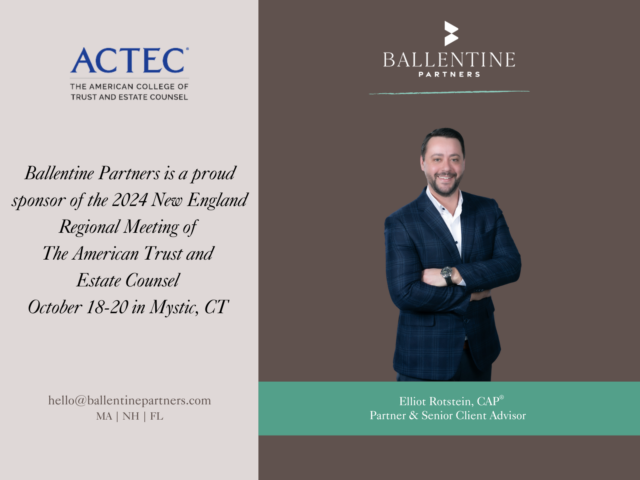If you are anything like me, you have been spending these cold, pandemic winter days getting acquainted with your new best friend, Netflix. Recently, I had the chance to watch the streaming platform’s latest blockbuster hit I Care A Lot. If you haven’t had the chance to watch it yet, worry not, I will not ruin any surprises for you – but fair warning, it is not for the faint of heart. Captured locally here in Boston and surrounding suburbs, the film portrays the story of Marla Gray (as played by Rosamund Pike), a court-appointed guardian for wealthy, aged individuals. Once appointed guardian, she ships her wards off to assisted living facilities while she proceeds to sell off all their assets, charge exorbitant fees, and slowly drain them of their wealth.
This film, along with other hits including Knives Out (also filmed locally), Empire, The Descendants, Rain Man, to name a few, shed light on a very real issue: financial exploitation of elders is rampant. According to the Consumer Financial Protection Bureau’s February 2019 Suspicious Activity Reports on Elder Financial Exploitation: Issues and Trends, the reported incidents of elder financial exploitation quadruped from 2013 to 2017. The sad reality is, there are a lot of “Marla Grays” out there, sometimes even within our own families. Here are some practical ways affluent families can help protect their wealth from unscrupulous individuals:
Asset Protection Trusts
Many are familiar with the concept of establishing an irrevocable trust for the benefit of children, grandchildren, or future generations. However, a self-settled irrevocable asset protection trust (“APT”), is an irrevocable trust established for the settlor’s own benefit. As the APT requires an independent trustee, it can be an effective tool for wealth owners to place assets just far enough out of reach to protect against instances of fraud and abuse, while still being able to enjoy the assets. Beyond wealth protection, depending on individual circumstances, these trusts can also offer an opportunity to reduce or defer state income taxes. To learn more about this structure, please see Roy Ballentine’s article Do We Need To Protect Ourselves From Ourselves? While the Asset Protection Trust is the most surefire way to protect your assets, if for some reason this strategy is not appropriate in your situation, the following methods are the next best alternatives.
Title All Assets in Trust
Once you have worked with a skilled estate planning attorney to review your estate plan and establish a Revocable Trust, the key next step is funding the Trust. Not only does this process work to avoid the cost and publicity of probate, it also ensures all the assets are controlled by the Trustee. Someday, should a doctor deem you no longer competent, control of your assets passes to the Successor Trustee – a trusted person you selected in advance. It is a worthwhile exercise to re-title your bank accounts, investment assets, life insurance policies, homes, autos, and boats to the Trust. In many states, your attorney can prepare a general assignment to transfer ownership of all non-titled personal property to the Trust. This would include everything from valuable works of art to your toothbrush (not that anyone is trying to take that).
Naming Trusted Contacts on Investment Accounts
Many investment custodians, including Fidelity and Charles Schwab, offer the opportunity to name a “Trusted Contact” over investment accounts. When a trusted contact is added to the account, the custodian is empowered to reach out to the named party to verify the legitimacy of any suspicious activity detected. While not foolproof, this can be a helpful added layer of defense.
Review and Freeze Your Credit
A precaution all individuals should consider is freezing credit with all three credit bureaus: Equifax, Experian, and Transunion. A credit freeze restricts access to your credit report. This prevents lenders from extending new lines of credit to fraudsters attempting to use your identity for personal gain. Freezing your credit does not prevent you from accessing your free annual credit reports. These are worth reviewing each year to monitor for any errors and quickly identify signs of identity theft. These annual reports should be accessed from www.annualcreditreport.com.
Data Security Measures
Most all financial accounts are accessible online. We have so many logins, it can feel hard to keep track of it all. Many resort to using similar logins across multiple accounts or keeping a notepad near the computer. These practices cause IT professionals to shudder. Why? It makes it easier for bad actors to log into your accounts, placing your wealth at risk. Make sure to use unique, challenging passwords and keep them in a secure place to minimize the chance that snooping eyes will gain access to your electronic “keys to the kingdom.”
While it is easy to believe we would never fall victim to fraudulent schemes, criminals are getting more sophisticated each day. It is ever important to remain vigilant and take proactive measures to protect against these bad actors. If you would like to learn more about these strategies, please contact any of our senior advisors.
Learn more about David J. Ferraro, Jr., CFP® here.
This report is the confidential work product of Ballentine Partners. Unauthorized distribution of this material is strictly prohibited. The information in this report is deemed to be reliable but has not been independently verified. Some of the conclusions in this report are intended to be generalizations. The specific circumstances of an individual’s situation may require advice that is different from that reflected in this report. Furthermore, the advice reflected in this report is based on our opinion, and our opinion may change as new information becomes available. Nothing in this presentation should be construed as an offer to sell or a solicitation of an offer to buy any securities. You should read the prospectus or offering memo before making any investment. You are solely responsible for any decision to invest in a private offering. The investment recommendations contained in this document may not prove to be profitable, and the actual performance of any investment may not be as favorable as the expectations that are expressed in this document. There is no guarantee that the past performance of any investment will continue in the future.



